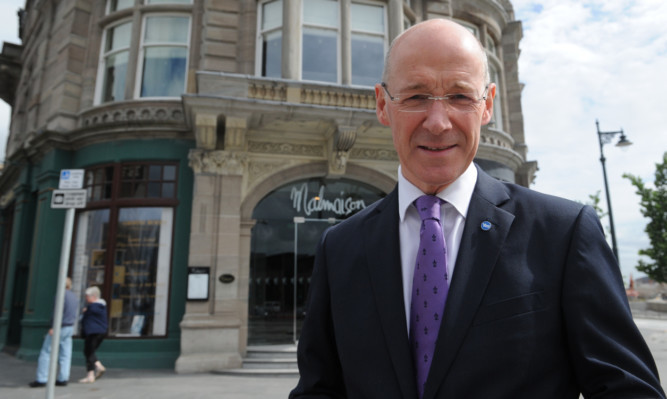A couple of people I know put their homes up for sale towards the end of last year and have been living in rented accommodation for the past few months. They were, no doubt, aware of the imminent change to stamp duty and decided to wait before plunging back into the market.
But there was another reason, not unconnected to a certain vote on September 18. They reasoned that, if the country voted “yes” for independence, the value of their properties would plummet, as economic confidence north of the border collapsed, and it would be too late for them to escape.
I said then that I thought they were being a little hasty and that all the signs pointed to Scotland opting for the status quo; sit tight and everything will be alright on the night.
However, while their actions may have been extreme, their fears turn out to be fairly commonplace. More than one in six Scots 700,000 people say they would consider leaving the country in the event of a “yes” vote, according to a new poll.
As many as 42% believe they would be worse off after independence (compared to 34% who think they’d be better off) and some of these jittery voters are anxious enough to see emigration as the only option if the nationalists win the day.
Whatever people feel about the more emotive issues surrounding separation, most have families to feed and rents and mortgages to pay and must put financial considerations above all else.
Many of them 17% of the population have clearly been put off by the SNP’s evasiveness over such crucial matters as a post-independence currency, the affordability of pensions and tax rises.
Dubious claims by Alex Salmond that every person will be richer in a separate Scotland, thanks to North Sea oil, have been treated with caution by canny Scots, who perhaps are more inclined to believe the pessimistic outlook for oil revenues issued by the Treasury.
The Scottish Government has refused to spell out details of its property tax, which will replace stamp duty, until after the referendum, leaving homeowners terrified of being out of pocket if they sell their houses.
And the recent admission by Scotland’s finance minister John Swinney that there is a case for a top rate of tax returning to 50p will do nothing to allay the anxieties of the middle classes.
While the nationalists have been either coy or confusing about the costs of independence, they have been quite outspoken over their spending plans: free university education, free prescriptions, free care for the elderly and free childcare.
Only in the secessionist utopia will Scots be entitled to apparently unlimited largesse from a benevolent state. To pay for all these expensive bribes, without over-burdening an already heavily over-burdened public sector, Mr Salmond has said he will increase immigration. Scotland will open its doors to 500 migrants a week, thus boosting the number of taxpayers who will foot the bill for the reckless spending.
Whitehall mandarins worked out in May that to make his sums add up he would actually have to lure half a million more newcomers. An unlikely prospect. But now, as the Panelbase poll shows, the SNP’s target is even more of a fantasy and, in fact, the flow across the borders will be in the opposite direction.
Of particular concern is the potential brain drain of young Scots, seeking employment opportunities in a bigger pond. There was an exodus of 15 to 24-year-olds from Ireland during the economic downturn and if the situation was repeated in Scotland it would be a disaster for a fledgling nation.
According to polls, the youth vote is overwhelmingly in the No camp evidence, if the nationalists would care to study it, that the next generation is uneasy about narrowing its horizons. Could Scotland go it alone, with its already ageing population, if the best of its youth took flight?
Some of us have (half) joked about being given one-way exit permits and put on the first helicopters out of Scotland if Mr Salmond snatches victory from the jaws of defeat. Well, it looks like there’ll be quite a crowd joining us on the helipads.
